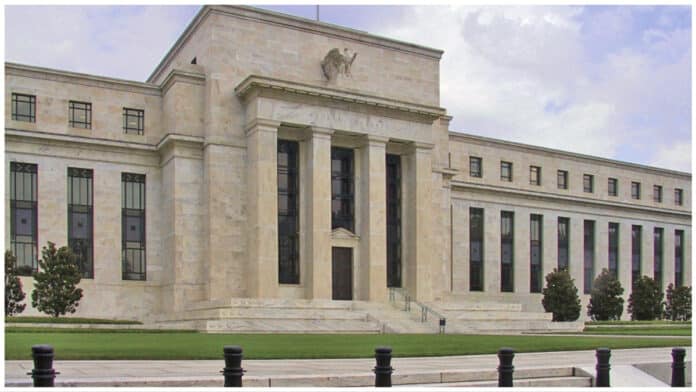The Fed: First they over loosen, printing $6 trillion in new capital and lowering interest rates to near zero. Then they wait too long to change their policy. Then they raise rates too fast for businesses and banks to react, bankrupting three large banks. Now they’re about to over tighten, and push the private sector over the cliff.
The Fed is a car braking on ice, and you know what happens – the car skids out of control because of over-braking. What the Fed should be doing is pumping the brakes and turning into the skid, but they’re panicked due to the high inflation they caused.
Of course, we’ve seen this car wreck before. The Fed has a long history of getting it wrong, always over loosening, then waiting too long and then over tightening. You’d think they would have an institutional memory to avoid repeat cycles of boom and bust. Hell, if they would just hold interest rates and the money supply steady, the economy could avoid swinging from one extreme to another. Reagan had it right; hold to a stable monetary and fiscal policy and lay down a steady foundation for the economy to work off of, given us 25 years of a steadily improving economy.
What the Fed’s open market committee doesn’t seem to understand is that raising interest rates sky high won’t affect government and school spending at all, but it will crush small businesses. $1.5 billion of school referendums were approved in 2022 in Wisconsin alone and all that spending is kicking in in 2023 and will continue until the construction is done in the summer of
2024. That has put record upward pressure on construction material pricing, and no amount of Fed pressure is going to change that. Governments and schools keep spending regardless of interest rates, but private sector businesses can’t do that.
Inflation is caused by the increase in the money supply and government spending. Inflation has always been a result of the money supply. Crushing the private sector with super high interest rates won’t alter the results. But inflation will float down over time as firms ramp up production and rebuild inventories following the government ordered COVID shutdowns. (I called it ‘shut
down and shut up’ because that’s what they wanted.)
Admittedly, inflation won’t really settle down to below 2% until mid-2024 when the government purchases slow down. Killing off the private sector will bring down inflation some, but that’s not the primary cause, so inflation will probably remain above 2% into 2024. In the meantime, prices will adjust to absorb all those extra dollars.
But then, the Fed should not be expecting or setting 2% as its inflation target. You can’t just jump off a cliff. You have to carefully climb down. In other words, the Fed’s target for 2022 could have been something like 6%, then step it down to 4% in 2023, and then 3% in 2024 and 2% in 2025. That would make sense, but the Fed never worries about reality or what makes sense; they just plow ahead in their own little unreality world.
And that’s why the private sector keeps getting hammered every ten years as the Fed swings the economy back and forth. They can’t ever accept that it’s their own behavior that causes all this – causes inflation, causes recessions, causes banks to collapse, causes the stock market and crypto currency speculation to stay high (due to excess liquidity), etc. It’s not the private sector.
Example – those banks collapsing was caused by the government telling them to buy treasury bonds as a safe place to park capital, and they were given an incentive to do so. Then the Fed rockets up interest rates while banks are sitting on those same bonds at low rates causing losses in their investment portfolio that jeopardizes their capital stack. Who’s fault is
that?
My advice to the Fed is this. Stop printing excess money. Maintain a steady money supply. Maintain stable interest rates. Don’t crash the economy to bring down inflation; inflation will come down after the government spending is done. Set stepped inflationary targets by year.
Don’t expect immediate results; slowing a freighter on Lake Michigan takes over a mile – it can’t happen any faster even if there is sailboat crossing its path. And stop blaming the private sector for your own mistakes. You caused this. Don’t destroy people’s livelihoods and their lives because of your mistakes.
T. Wall holds a degree from the UW in economics and an M.S. in real estate analysis and valuation and is a real estate developer. Disclaimer: The opinions of the writer are not necessarily those of this publication or the left!





![Governor Caught Playing Politics with Brillion Residents’ Lives & Livelihood [COLUMN] ron tusler](https://www.wisconsinrightnow.com/wp-content/uploads/2025/07/MixCollage-15-Jul-2025-03-35-PM-9568-356x220.jpg)


![Protecting Portland: No Good Deed Goes Unpunished [REVIEW]](https://www.wisconsinrightnow.com/wp-content/uploads/2025/07/portland-356x220.jpg)























